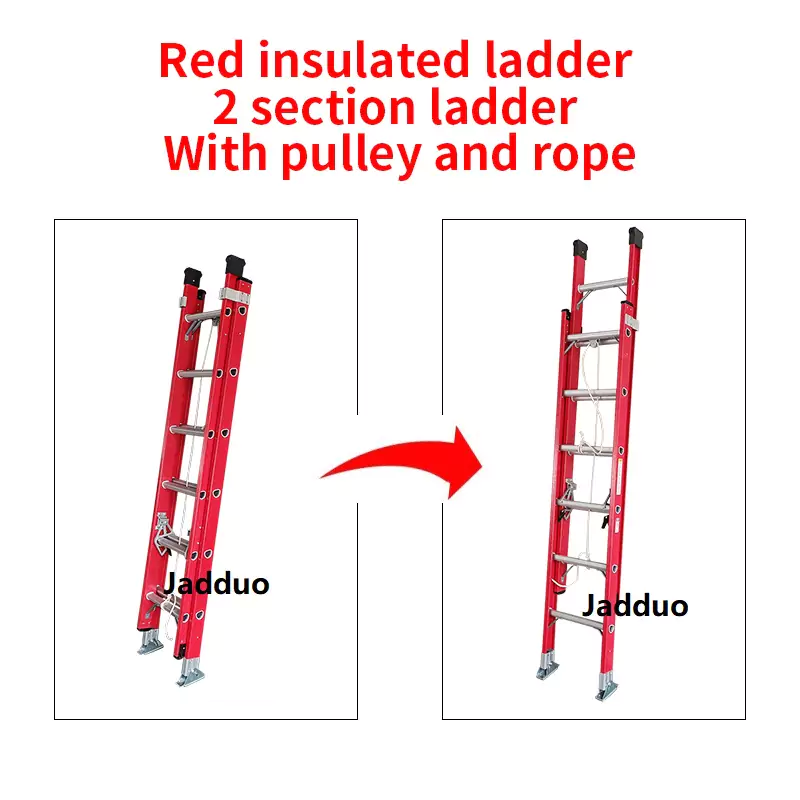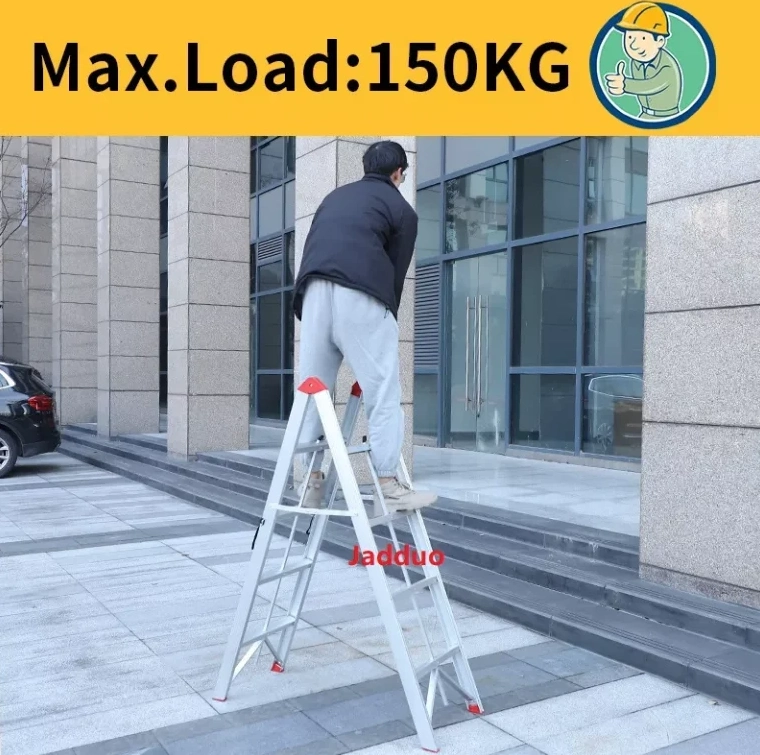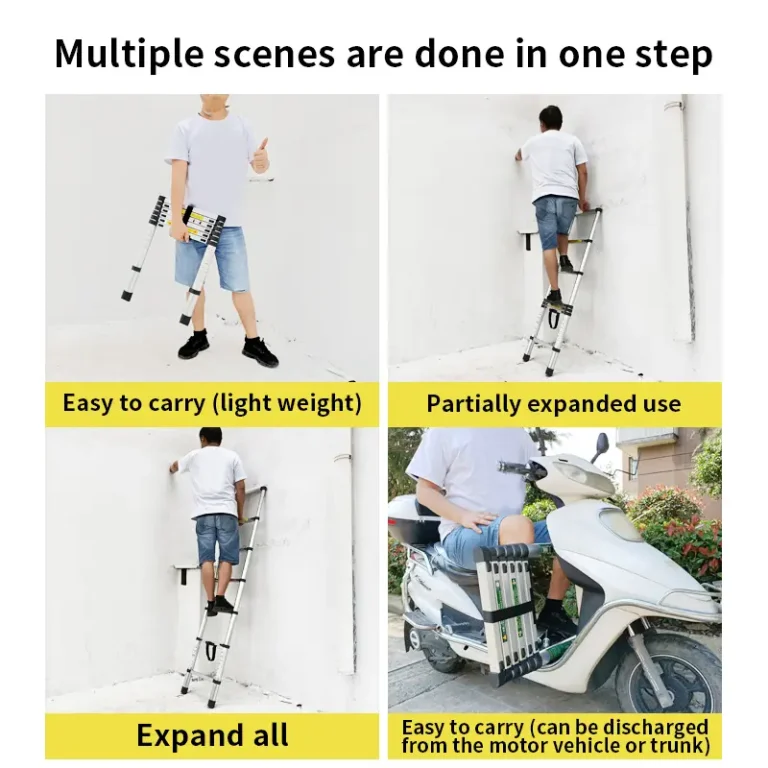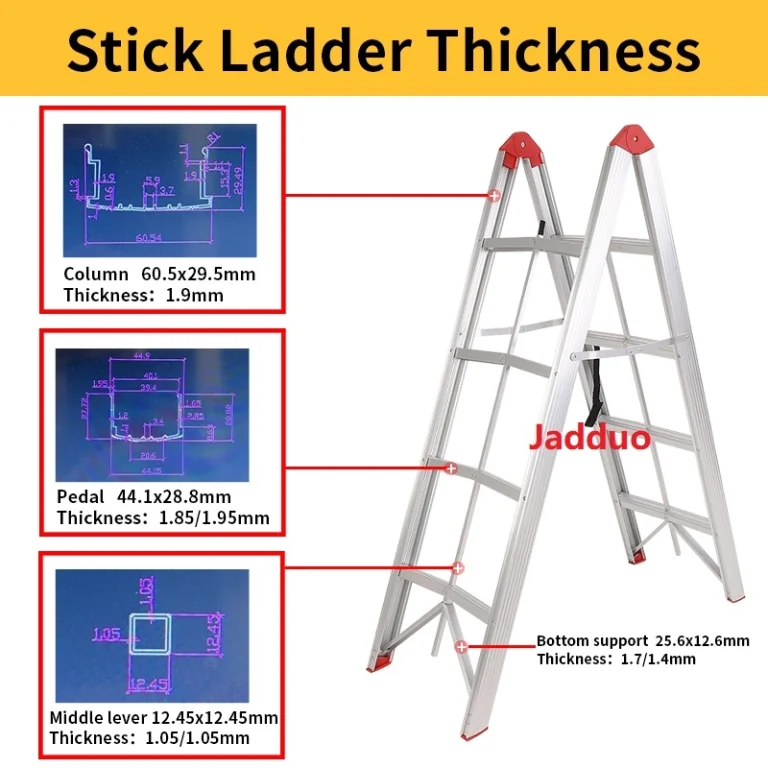Picking the perfect ladder is key for safe, fast painting—whether you’re working on tall outdoor walls or tricky indoor spots. Think about height needs, weight limits, sturdy materials, and stable designs to fit your job. JADDUO’s EN131-certified ladders provide pro-level options, from light aluminum models to flexible multi-use designs.
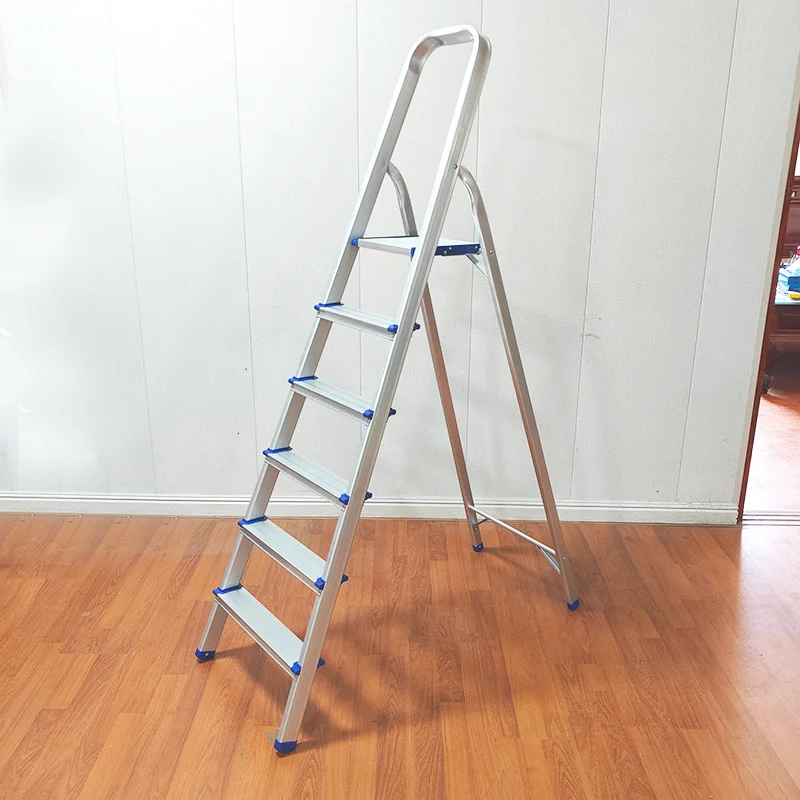
Key Considerations When Choosing a Ladder for Painting
Checking Height Needs for Indoor and Outdoor Jobs
You need to know the tallest point you’ll paint. For indoor tasks like ceilings or stairwells, a simple A-frame ladder usually works great. For outdoor jobs, like painting upper floors or roof edges, a long extension ladder is a must.
Never stand on the top two rungs of an A-frame—it’s super risky! To figure out the right ladder, pick one about 1 meter shorter than your target height. For straight ladders, set them at a 75° angle. Also, make sure the top sticks out at least 1 meter above your work area for safety.
Weight Limits and Strength for Pro Painters
Painters carry cans, brushes, rollers, and sprayers up ladders. Your ladder must handle your body weight plus all that gear. Most pro ladders can hold 150kg or more. Models with strong aluminum alloy frames spread weight evenly and stay solid.
Stability and Support on Different Grounds
Painting happens on all sorts of surfaces—gravel outside or carpet inside. Always place your ladder on flat, firm ground. Skip uneven or slick spots. Choose ladders with wide, non-slip feet or extra stabilizing bars. These boost grip and lower the chance of tipping over.
Types of Ladders for Painting Jobs
Extension Ladders for Tall Outdoor Tasks
Extension ladders are awesome for painting high buildings or big walls. You can adjust their length to safely reach over 10 meters. But they need a solid surface to lean on. Also, you must set them at the right angle.
Use a 75° angle—1 meter out for every 4 meters up.
Step Ladders for Indoor and Medium-Height Work
For indoor walls, ceilings under 3 meters, or trim around doors, step ladders are super handy. They stand alone, so no wall is needed. They’re great in tight spots where you need to move around easily.
Multi-Position Ladders for Flexible Tasks
Multi-position ladders can switch into A-frame, extension, or scaffold shapes. They’re perfect for mixed jobs like painting ceilings or stairwells. These ladders are easy to carry and adjust to fit different tasks.
Material Comparison: Aluminum vs. Fiberglass for Painting
Weight, Strength, and Weather Durability
Aluminum ladders are popular because they’re light and don’t rust. The aluminum alloy in JADDUO ladders is strong, lightweight, and resists corrosion. This makes them great for indoor and wet outdoor jobs.
Fiberglass ladders are stiffer but heavier. They’re better for staying in one spot rather than moving around a lot.
Electrical Safety with Fiberglass
When painting near wires or lights, like outdoor fixtures, fiberglass is safer. It doesn’t conduct electricity, even if wet. Avoid metal ladders near power sources—always go for non-conductive materials like fiberglass.
Features That Boost Safety and Speed for Painting
Non-Slip Feet and Stabilizing Bars
Rubber non-slip feet stop ladders from sliding on smooth floors or wet grass. Stabilizing bars at the bottom add side-to-side steadiness. This is super helpful when you lean to paint with a brush.
Platform Design and Tool Tray Features
Ladders with platforms let you stand comfortably for long painting sessions. They also keep tools close. Wide pedals let your feet rest naturally, cutting down on tiredness. Tool trays at the top hold brushes, rollers, and cans, so you climb less.
Locking Systems and Height Adjustments
Strong locks are a must for multi-position or telescoping ladders. Always release locks carefully for each section. Make sure all locks click into place before you climb. This keeps the ladder steady during use.
Recommended JADDUO Ladders for Pro Painters
Looking for trusty ladders for pro painting? JADDUO has you covered. Based in Yongkang, China’s “Hardware Capital,” JADDUO has made EN131-certified aluminum alloy ladders since 2015. They sell to over 50 countries.
Their lineup includes:
- Telescoping Extension Ladder Series: Small to store but reaches far.
- Multi-Functional Articulated Ladder Lineup: Switches between A-frame, scaffold, or extension modes.
- Fiberglass Step Ladder with Integrated Tool Shelf: Great near wires with handy storage.
Each ladder is built with safety in mind and handles tough painting jobs.
Matching JADDUO Ladders to Specific Painting Needs
Home Interior Painting
For painting living rooms or bedrooms with standard ceilings (~2.8m), grab an A-frame ladder with 30cm rung spacing. This spacing keeps you steady for tasks like painting or changing bulbs. A platform step ladder adds comfort for long indoor jobs.
Commercial Outdoor Wall and Facade Painting
Use an aluminum extension ladder with at least 150kg capacity and non-slip treads. Pick models with wide pedals for long hours of standing. JADDUO’s telescopic series stores easily, which is great for jobs with tight transport space.
Ceiling, Trim, and Stairwell Work
Multi-position articulated ladders shine here. They can form stable scaffolds over stairs or uneven floors. Look for models with balance bars for extra steadiness during detailed trim work.
Maintenance Tips to Keep Ladders Lasting in Painting
Cleaning Paint Spills
After painting, wipe off dried paint from rungs or joints with gentle cleaners that won’t harm aluminum. Remove chemicals or dirt. Add lubricant to joints to keep them smooth. This stops buildup that could mess with locks.
Checking Hinges, Locks, and Feet Regularly
Every month, or before big jobs, look at rivets, bolts, and hinges for wear. Swap out worn rubber feet right away—they stop slips on slick surfaces. Tighten bolts and test locks to make sure they work.
Storing to Avoid Rust or Damage
Keep your ladder folded in a dry spot, away from sun or damp areas like garages with condensation. Lubricate joints if you don’t use it for a while. Don’t stack heavy stuff on it—it could bend the frame.
FAQ
Q1. What ladder is safest near electrical fixtures?
A: Fiberglass ladders are best. They don’t conduct electricity, even when wet, so they cut the risk of shocks compared to metal ladders.
Q2. How do I pick the right ladder size?
A: For A-frame ladders indoors, get one 1 meter shorter than your reach height. Never use the top two rungs. For extension ladders, follow the 75° angle rule.
Q3. Can one ladder work for different tasks?
A: Yes! Multi-position articulated ladders switch to A-frame, extension, or scaffold setups. They’re great for all kinds of painting jobs.

